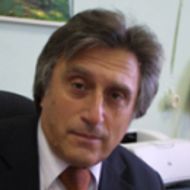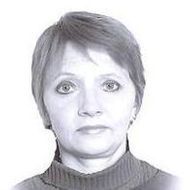- A
- A
- A
- ABC
- ABC
- ABC
- А
- А
- А
- А
- А
- HSE University
- Educational Departments
- Faculty of Humanities
- School of Philosophy and Cultural Studies
- Research Group "Practical Philosophy"
-
School
- About the School
- Faculty Members
- International Faculty
- Scientific activity
- Educational activity
-
Research Groups
-
Educational Programmes
-
Conferences
Address: 21/4 Staraya Basmannaya Ultisa, building 1, room 414в
Phone: +7 495 772-95-90*22692
Email: aengovatova@hse.ru
Research Group "Practical Philosophy"
The Practical Philosophy research group brings together leading experts in ethics, political philosophy, social philosophy, and philosophy of technology, as well as researchers in the history and philosophy of law and the general methodology of the social sciences.
Historically, “practical philosophy” was the name for that large area of thought that concerns human actions: their conditions, their meaning and goals, and their results, including long-term ones. Both ethics and political philosophy turned out to be part of such a theory of action. Today, chairs of practical philosophy can still be found in few universities, but more often they have been replaced by chairs dedicated to narrower disciplines, such as moral or political philosophy. The chair of Practical Philosophy was first created at the Higher School of Economics under the organization of the Faculty of Philosophy, but the concept of the research unit “Practical Philosophy” is much broader and considers a wider range of problems.
Another meaning of the word “practical,” which almost inevitably comes to mind, is connected to the need of solving urgent problems. This, perhaps, should not be taken too literally: practical philosophy should not replace applied analyses developed in other areas of knowledge. Practical philosophy is undoubtedly most focused on what the Germans once called Zeitdiagnose — the diagnosis of our time, in an era that lacks the resources for self-awareness and self-determination.
By uniting specialists in ethics, political philosophy, social philosophy and social theory within the framework of a large research project, we get a rare chance, on the one hand, to restore the unity of a discipline that once existed and is far from exhausted, and on the other hand, to provide a context for communication and dialogue between colleagues who are engaged in important but comparatively narrower problems. Currently, one of the platforms for the implementation of this project is the Russian Sociological Review magazine, which pays great attention to the philosophy of law, political philosophy, the theory of action, and social philosophy.
The main thematic directions of the Research Group “Practical Philosophy” are:
- technology and the future of humanity: social consequences of technological development and response to the challenges of a technological perspective;
- ethics and law as limitations and resources of modern society: history and modernity;
- neuroethics and cognitive science: modern challenges and opportunities for practical philosophy and social theory.
- About
- About
- Key Figures & Facts
- Sustainability at HSE University
- Faculties & Departments
- International Partnerships
- Faculty & Staff
- HSE Buildings
- HSE University for Persons with Disabilities
- Public Enquiries
- Studies
- Admissions
- Programme Catalogue
- Undergraduate
- Graduate
- Exchange Programmes
- Summer Schools
- Semester in Moscow
- Business Internship
- © HSE University 1993–2026 Contacts Copyright Privacy Policy Site Map
- Edit



